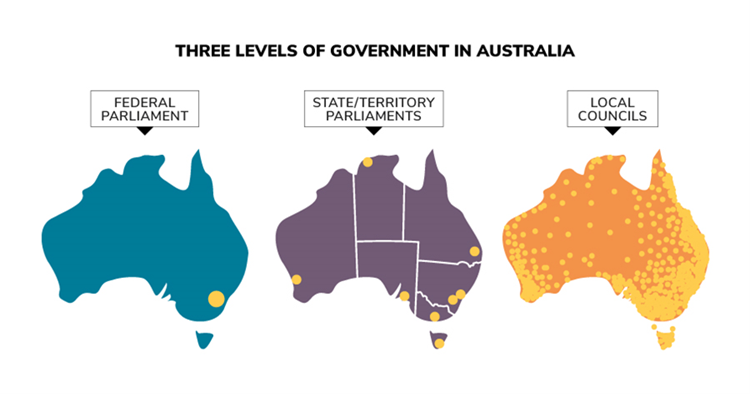14/11/2024
Complex national issues and shared challenges like the COVID-19 pandemic require different levels of government to work together in different ways. This can create challenges for state and federal parliaments and other institutions responsible for holding individual governments to account. On Friday 20 May 2022, Professor Cheryl Saunders AO will present a Senate Lecture exploring how governments can be held to account when they work together and the potential barriers to accountability.
How can governments work together?

Image: Parliamentary Education Office
Federal, state and territory and local governments in Australia can co-operate in a range of ways, including through:
- dialogue between leaders, ministers and public servants
- funding arrangements between different levels of governments (for example, city deals)
- specific forums for co-operation (for example, National Cabinet), and
- issue-specific organisations (for example, the Murray Darling Basin Authority).
The term ‘cross-jurisdictional bodies’ is often used to refer collectively to the forums and organisations that facilitate cooperation between governments. Depending on how they are established, the decisions of cross-jurisdictional bodies can have a binding effect without separate implementation by each participating jurisdiction.
How can the Senate exercise its accountability role?
The Senate has a range of tools that it can use to hold the federal government to account in its work with other jurisdictions. These include:
When draft legislation proposing the establishment of a cross-jurisdictional body under Commonwealth law is considered by the Senate, it has the power to scrutinise and propose changes to the objectives and functions of that body. To ensure transparency, the Senate may require that the cross-jurisdiction body publish a report on its work at specific times and undergo regular review.
There are, however, some limitations on the Senate’s accountability role in this area. For example, there are restrictions on the Senate’s capacity to disallow (veto) certain legislative instruments which facilitate the establishment or operation of a cross-jurisdictional body.
Join us for the Senate Lecture
To learn more, please join us at Australian Parliament House or online at 12:15 pm on 20 May 2022 for the next Senate Lecture. For more information about the lecture, or to register, visit aph.gov.au/senate/lectures.
Watch
Watch the Parliamentary Education Office’s snapshot video on the Three Levels of Government.